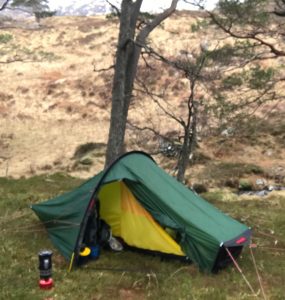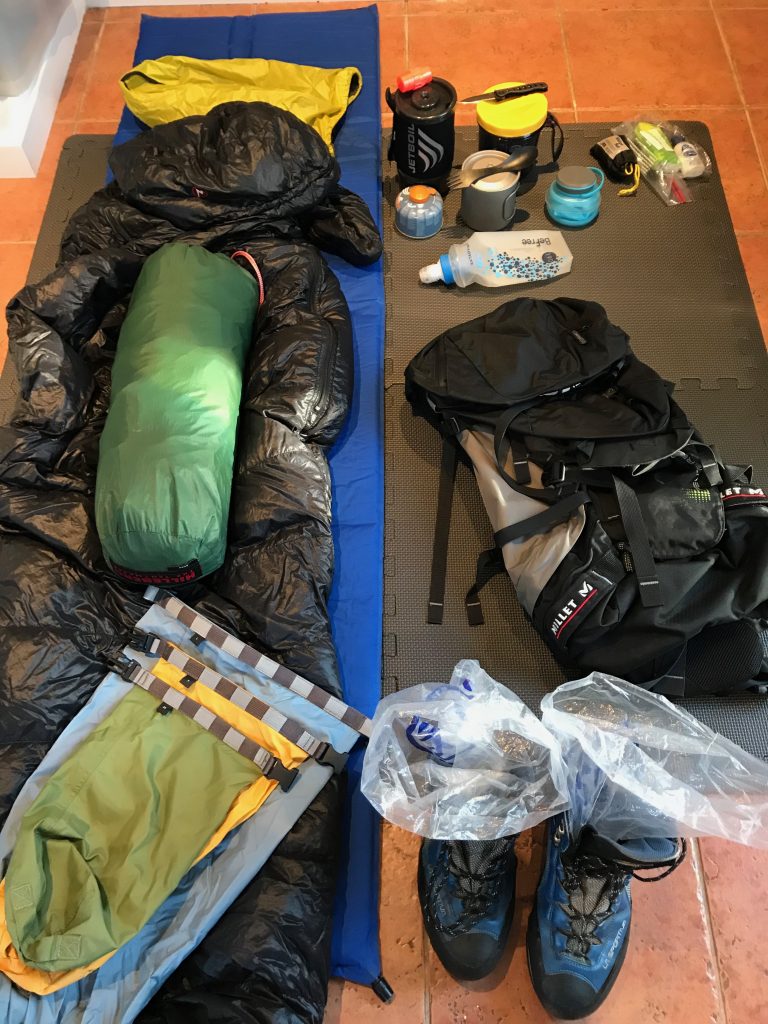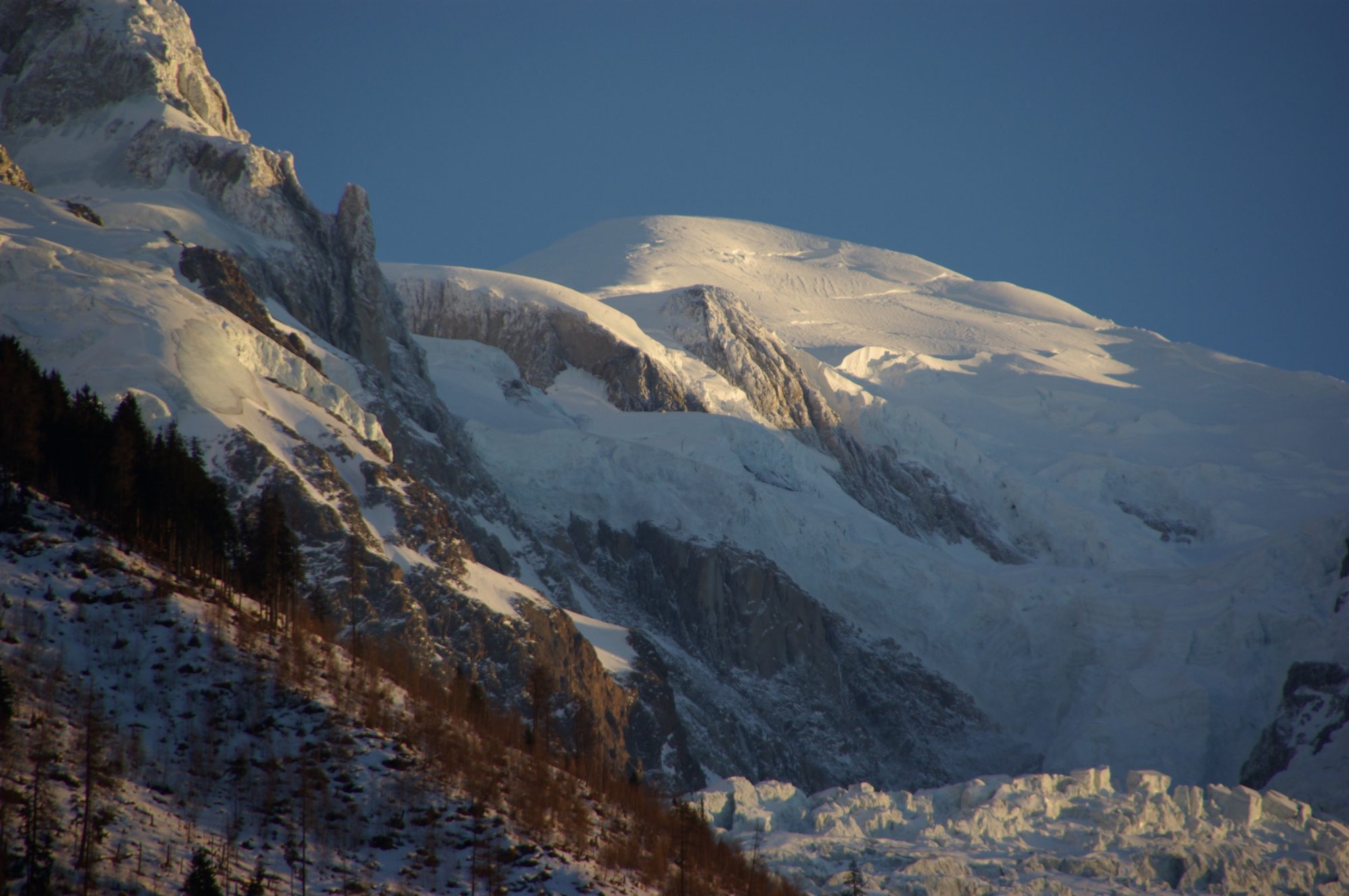If you haven’t been wild camping before, knowing what to pack can be a bit daunting.
As a starting point, I’ve written down the kit I take for 1-3 night wild camping trips in spring, summer and autumn in the UK. I’ll save a discussion about winter camping for another time.

Everyone will give you slightly different advice, and it takes a few trips to establish your own personal system, likes and dislikes.
I would suggest trying to stick to a few key principles:
Go light to go fast:
Take enough gear to be safe and warm, but otherwise focus on going as light as possible – you’ll be thankful when you’re still looking for your elusive camp spot after 8 hours on the hill.
Approach with the right mindset:
Part of the adventure of wild camping is to rough it a bit; you’ll get a lot more out of the experience if you accept that you’re going to have a couple of nights of suboptimal sleep, no hot showers and too many dehydrated noodles and cereal bars.
If you approach the trip with this mindset, you’ll be less likely to pack unnecessary gear which will only weigh you down. I can assure you that when you get back your evening meal will taste fantastic, and you’ll sleep like a log!
Allow yourself a luxury item:
Admittedly, if you start to do a lot of wild camping, then the fully spartan, minimalist approach can wear a bit thin. Yes, it’s supposed to be an adventure, but it’s also supposed to be enjoyable, so there’s nothing wrong with taking a luxury item or two to keep morale up. For example, freshly ground coffee, a small cake to share in the evening, hipflask with whisky etc.

So, here’s the basic list:
- Rucksack:
- 40 litres
- this is plenty of space for a 2 night camping trip. If you take something bigger you’ll likely fill it with stuff you don’t need. Going for a smaller pack forces you to think about what’s really essential. If absolutely necessary, some items can be covered and strapped to the outside (eg. a rolled up sleeping mat)
- in winter or on longer trips you’ll need more gear, so a 60-70 litre pack is more useful
- Sleeping:
- Lightweight 1 man tent
- Ideally this should weigh less than 1.5kg. You can shave some weight by buying ultralightweight tent pegs. Aim for a model with a decent vestibule (porch area for storing your rucksack and cooking in if it’s raining), a robust groundsheet and enough height so you can sit up
- Full length sleeping mat
- Stuff sack – fill with your spare clothes, cover with a fleece and use as a pillow
- 2-3 season sleeping bag
- Lightweight 1 man tent
- Cooking:
- Lightweight stove and pan – I use a Jetboil all in one system, so there’s no need for a pan
- Enough fuel
- Matches – if the stove lighter fails
- Mug
- Large bowl
- Spoon/ spork
- Pocket knife
- Food – dehydrated meals for the number of nights you’re away, oats for breakfast, wraps/ bagels for lunches, plenty of trail mix and cereal bars for snacks (preferably home-made – see here, here and here)
- Teas/ coffee/ hot chocolate/ soup – I allow for at least 4 hot drinks per day plus water
- Water bottle – for collecting and storing water at camp
- Water filtration system – if you’re going wild camping then the assumption is you’re going to have access to water supplies along the way. I always boil my water when at camp, and use a filter to make water safe when en route, unless I’m sure it’s clean
- Clothing:
- Waterproof jacket and trousers
- Primaloft or down jacket for warmth at lunch stops and camp (synthetic insulation is more useful than down in the damp UK climate)
- Base layer
- Microfleece
- Walking trousers
- Spare base layer and pants/ thermals for camp
- Walking socks plus 1 spare pair
- Boots
- 2 plastic bags
- Depending on the conditions and terrain, it’s possible your boots and socks will be wet when you get to camp. Take a spare pair of socks to change into and line your boots with plastic bags. You can then walk around camp in your boots without getting your fresh socks wet. Generally your boots will have mostly dried off by the next day. Wring out your wet socks and dry them in your sleeping bag overnight.
- Gaiters – invaluable for helping to keep your feet dry
- Beanie
- Gloves (consider also taking mitts)
- Buff
- Midge net – essential if camping in the West of Scotland
- Multiple dry bags of various sizes for storing spare clothing and your sleeping bag
- Miscellaneous items:
- Map and compass
- Phone
- Headtorch (plus spare batteries or back up headtorch)
- Sunscreen, sunglasses and sun hat – if appropriate
- Alcohol hand sanitiser gel/ toilet paper/ plastic trowel
- Toothbrush and toothpaste
- Bin bag – you need to pack out all your waste
- Basic first aid kit – dressings, tick remover tool, analgesia etc
- Paracord and duct tape for emergency repairs
